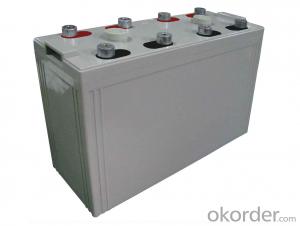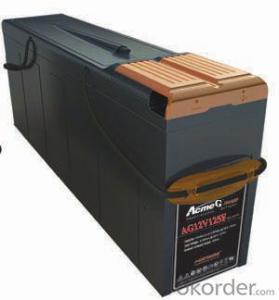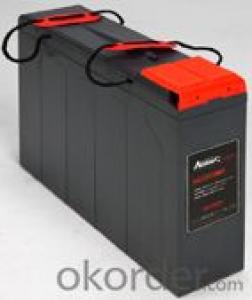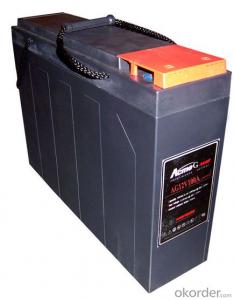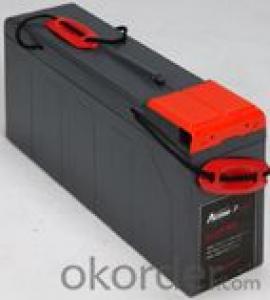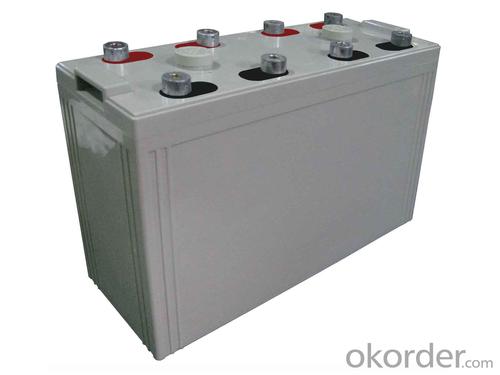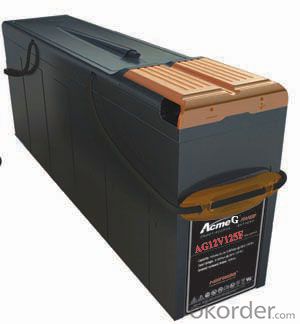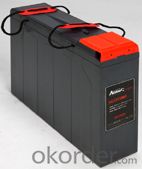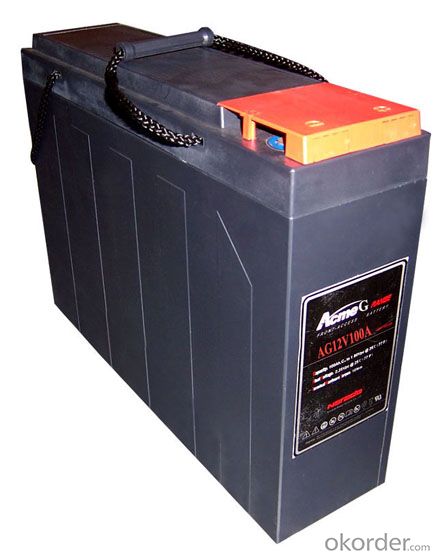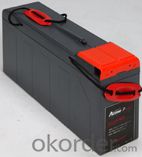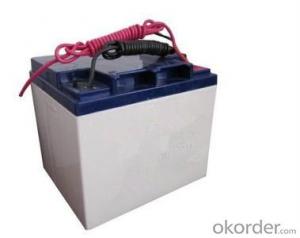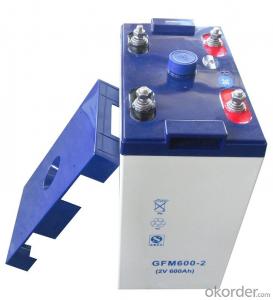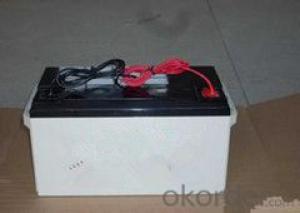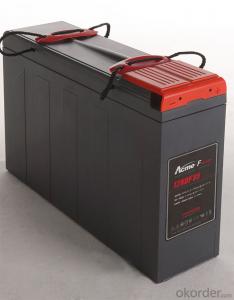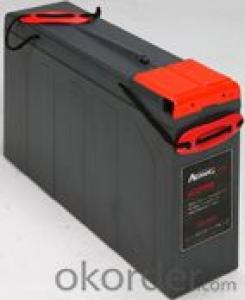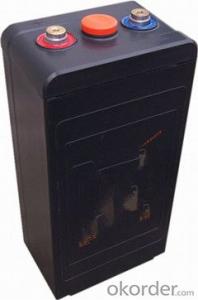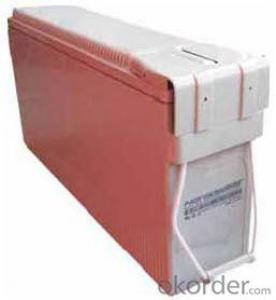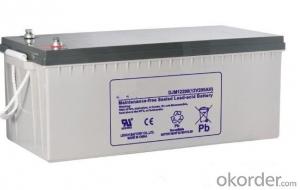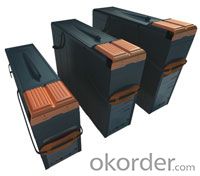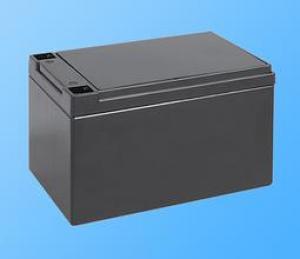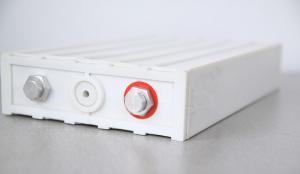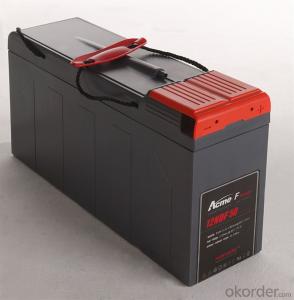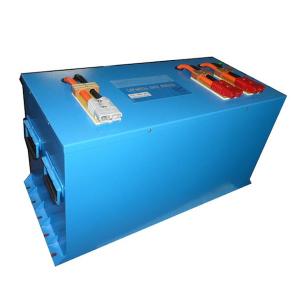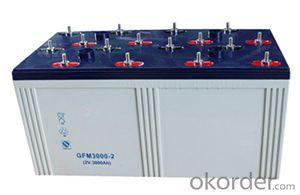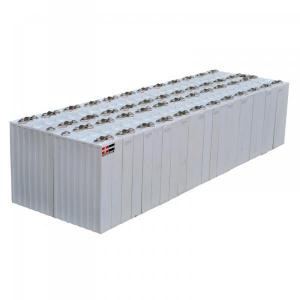Gel Battery the AcmeG Series Battery AG12V106F
- Loading Port:
- Shanghai
- Payment Terms:
- TT OR LC
- Min Order Qty:
- 100 unit
- Supply Capability:
- 300000 unit/month
OKorder Service Pledge
OKorder Financial Service
You Might Also Like
Range summary
The AcmeG range front access gel batteries is designed based on the Acme series, using the polymer gel electrolyte with real front access structure. The state-of the-art internal and external design ensures AcmeG the high reliability and makes the installation quite simple and safe when placed on a standard relay rack tray or in a closed cabinet. AcmeG range gel battery is designed with high energy density and suitable for 19". 23" rack or cabinet.
Technical features
Long life
Using the polymer gel electrolyte
4BS paste technology
Special paste formula
Special patented grid alloyWide operational temperature range
Excellent charging and discharging ability at low temperature
Decline the water-loss at high temperaturespecial structure
real front access structure makes the installation and maintenance squite simple and safe
suitable for 19". 23" rack or cabinet
The specially centralized venting system ensures the small gas be vented our of the closed cabinet
Type: | AG12V106F | |
Voltage: | 12V | |
Nominal Capacity: | 100Ah(C10) | 100Ah(10 hours rate:) |
Length: | 390mm | |
Width: | 105mm | |
Height: | 287mm | |
Height with termial: | 287mm | |
Weight: | 33Kg |
Compliant standards
Designed to be compliant with:
IEC 60896-2
BS 6290 Part 4
Telcordia SR-4228
EUROBAT GUIDE
UL
Manufactured under system ISO9001 & ISO14001 by NARADA
Battery installation compliant with:
EN 50272-2 or local equivalents
Main applications
Telecom standby and cyclical applications
UPS
Power plant and power transfer system
Solar energy system
Emergency lighting system
Products characteristics:
float voltage: 2.25Vpc at 77oF(25oC) , Equalization charge voltage: 2.40Vpc at 77oF(25oC)
Self discharge rate: < 2% pre month at 68oF(20oC)
Design life: more than 12 years at 68oF(20oC)
Shelf life: 6 months at 68oF(20oC)
Recombination efficiency: >99%
the Pressure at which the valve opens & reclose is Opened at 10 to 35kpa(1.45psi to 5.08psi) and
closed at 3 to 15 kpa (0.44psi to 2.18psi)
Temperature ranges: -40oC to 50oC
Terminal Hardware Torque:10±0.1N m
Container Material: ABS (V0 optional)
FAQ
![]() What is a Gel Cell Battery?
What is a Gel Cell Battery?
A gel battery design is typically a modification of the standard lead acid automotive or marine battery. A gelling agent is added to the electrolyte to reduce movement inside the battery case.
![]() What is sulfation of batteries?
What is sulfation of batteries?
Sulfation is the formation or deposit of lead sulfate on the surface and in the pores of the active material of the batteries' lead plates. If the sulfation becomes excessive and forms large crystals on the plates, the battery will not operate efficiently and may not work at all. Common causes of battery sulfation are standing a long time in a discharged condition, operating at excessive temperatures, and prolonged under or over charging.
![]() How long a battery can last?
How long a battery can last?
The service design life of a battery are vary considerably with how it is used, how it is maintained and charged, temperature, and other factors.
- Q: What is the difference between a maintenance-free battery and a conventional battery?
- As a result of maintenance-free batteries using lead-calcium alloy grille, the amount of water generated when charging less water evaporation, coupled with the shell with a sealed structure, the release of sulfuric acid gas is also very small, so it compared with the traditional battery, With no need to add any liquid, the wiring pile head, wire and body corrosion less anti-overcharge capacity, starting current, power storage time is long, by the car people welcome.
- Q: How to determine the battery is good or bad?
- Instrument test: the general use of battery discharge tester, the test instrument two positive and negative clamp were holding the battery positive and negative electrodes, press the test button to observe the test instrument instructions.
- Q: Maintenance-free battery how to detect it?
- Battery pole Pole terminal has corrosive material without treatment, as long as no loose on it. If the appearance of the corrosive material, the inner surface of the terminal will also be corrosion, resulting in increased resistance, affecting the normal battery charging and discharge, it must be promptly processed.
- Q: What are the advantages of maintenance-free batteries?
- Maintenance-free battery because of its normal charging voltage, the electrolyte only produce a small amount of gas, so throughout the use of the need for the addition of distilled water, in the normal charging system, do not need to remove the charge from the removal. But in the maintenance of the proportion of its electrolyte should be checked.
- Q: What is the meaning of the battery above 12v65Ah?
- 12V is said to be the voltage, 65Ah is the current. (A is the unit of current. H is the time unit .1 hours.)
- Q: The role of the battery?
- Battery is widely used, can be used for ups, electric cars, scooters, cars, wind energy solar systems, security, and so on.
- Q: What kind of battery is divided into?
- At present, we used the car battery is divided into three categories, namely, ordinary batteries, dry batteries and maintenance-free batteries three.
- Q: What is a maintenanceable battery?
- This is relative to a maintenance-free battery. Maintenance of the battery needs to be supplemented with electrolyte to ensure work, while maintenance-free is not required.
- Q: Battery 200ah / 104 what does that mean?
- 2V battery capacity (from 200AH-3000AH have) long design, good stability, the price is also expensive; 12V battery capacity is generally the largest 250AH, design life as 2V, price economy, high current discharge better.
- Q: Lead-acid battery how to maintain?
- When receiving the battery should first check whether the phenomenon of short circuit, first short circuit repair and then fill the distilled water.
Send your message to us
Gel Battery the AcmeG Series Battery AG12V106F
- Loading Port:
- Shanghai
- Payment Terms:
- TT OR LC
- Min Order Qty:
- 100 unit
- Supply Capability:
- 300000 unit/month
OKorder Service Pledge
OKorder Financial Service
Similar products
Hot products
Hot Searches
Related keywords
